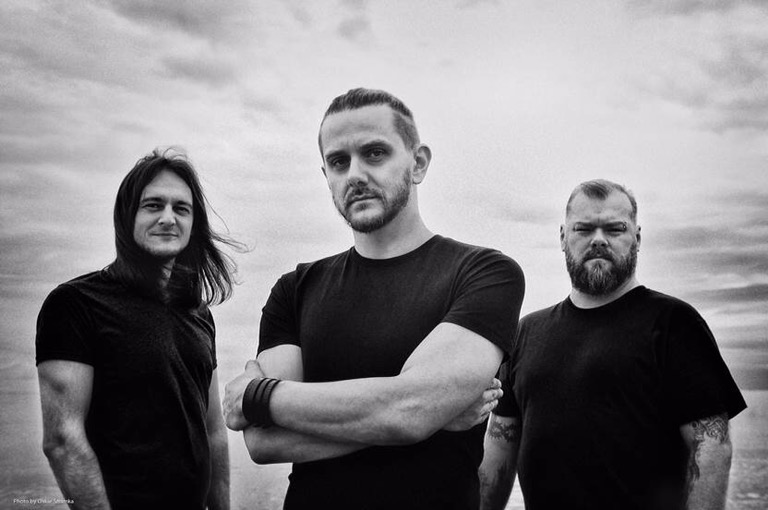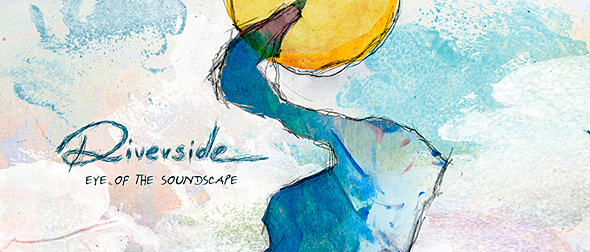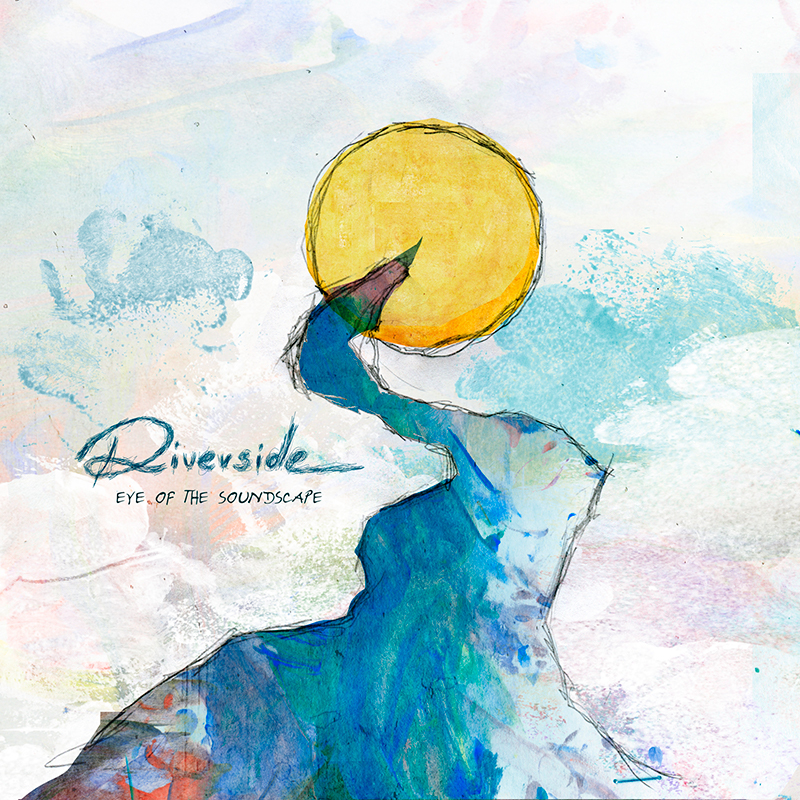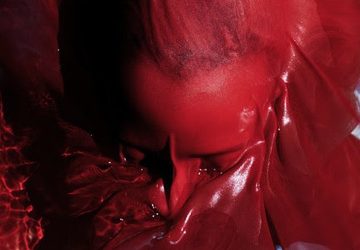
Orson Welles once said, “We’re born alone, we live alone, we die alone. Only through our love and friendship can we create the illusion for the moment that we’re not alone.” This notion is effectively conveyed throughout Riverside’s newest release, entitled Eye of the Soundscape, a emotionally evocative and a hauntingly beautiful homage to the recently passed Piotr Grudziński’s soulful and emotive guitar work. Through organically-developed electronic shifts, fervent compositions, and a few 10-minute tracks on the LP, released on October 21, 2016, Eye of the Soundscape is the soundtrack to finding solace in the midst of chaos, and the beauty of loneliness in the journey of death and rebirth.
On the surface, Eye of the Soundscape can be viewed as lonely and unsettling, underwhelming, and even alien. However, once a deeper look is taken, one can find that Eye of the Soundscape is a fragile, imperfect gem that serves as a call-and-response of sorts to the band’s dear member Grudziński. In turn, this album tells the story of death and rebirth itself, from the brink of oblivion. From the songs “Where the River Flows” and “Shine,” to the moment of passing itself with “Rapid Eye Movement,” to wandering about the abyss with “Night Session” (Part One and Two), as well as “Sleepwalkers,” to the final rebirth in “Heavenland” and “Return.” Yet, the rest of the story is completely up to interpretation, as there are minimal vocals. The album can evoke loneliness or hopefulness, bravery or concession, depending on the perspective of the listener. Soundscape is a work that encompasses the human condition and the biggest fear to grace the Earth, all told through jarring and passionate rhythmic composition.
That being said, this album certainly is not for everyone, even those in the Progressive Rock or even Riverside fanbase. This release is definitely a mixed bag: as the majority of the music is engaging, others simply fall hopelessly flat background music for a gutter Horror film. Those who enjoy Kraftwerk, Lunatic Soul, or even Pink Floyd’s latest effort, 2014’s The Endless River, will most likely enjoy Eye of the Soundscape. Although the run time, roughly 52 minutes, is harrowing for a fully ambient piece, avid fans of Experimental Progressive Rock and organically-formed electronic compositions will be quite pleased.
Opening with a menacing orchestral tone, “Where the River Flows” builds to a cinematic and ethereal caliber that almost screams “prepare for war.” With unique percussion and scattered Sci-Fi clicks and oozes, coupled with a distorted guitar riff reminiscent of a Western in space, one cannot help but imagine a treacherous extraterrestrial landscape. Followed are calculated, yet biotic, rhythmic patterns and a Radiohead’s Amnesiac-esque riff from Grudziński, which is simply oh-so infectious. At around the 6 and a half minute mark, the track breaks out into full-on electronic lunacy with a compelling keyboard arpeggiation as the composition gathers emotion and expands upon itself.
At about 8 minutes into the opening track, it takes a wallowing breath of life as clean-as-a-whistle guitar syncopation commences, and the track transitions from a cinematic battle to a profound and alienated cry. Duda’s hypnotic falsetto over deep piano chords, willing the listener to “follow,” is absolutely human and is an absolute highlight of the entire LP. The ambiance is deepened as the instrumentals disperse, and the vocalist’s haunting echos kindle cold melancholy.
The second track, “Shine,” is another brand-new release from the outfit, commencing with robotic arpeggiation followed by robust rhythmic patterns. It is ominous and overtly synthetic, illustrating an outer-space oblivion capitalized on by celestial progressive licks. The tailend of the track sees a full-on jump into Rock guitar, layering past melodies to create a full and complete composition exposing the layers of emotion within the landscape of celestia. Then, toward the end of the first disc, listeners are met with “Rapid Eye Movement,” a 2007 track that had been recently remixed for this LP. With mimicked resuscitation machine feedback and haunting ambiance, it is exactly what this album is all about. As it was an earlier composition in the band’s career, we can clearly hear the humble origins of Eyes of the Soundscape.
However, the album dips midway, notably during both “Night Sessions” and “Sleepwalkers.” “Night Session Part One” is looping bass and dark miscellaneous twinkles, while “Sleepwalkers” contains schizophrenic mumblings over a repetitive dance beat with only an ending buildup to save it. I was a bit more hopeful for “Night Session Part Two,” as it opens with a soulful, yet distant, sax, airy and spacious as looming percussions threaten. There is a dark-light juxtaposition, a battle between uplifting sax and ominous percussions, but both “Night Session” tracks lose a power and drive that Eyes of the Soundscape seemed to bleed during the first two tracks.
In contrast, “Heavenland” is an absolute treasure on the album. Duda’s vocals are haunting and absolutely beautiful, pouring warmly over the track. Acoustic guitar speaking back and forth to a piano in spacious hollow tones evokes a true sense of bliss and finding perfection in a chaotic world.
It has been noted that Grudziński always wanted to create an ambient album with Riverside, one that was a little more geared to that niche in the Progressive spectrum. Although Eyes of the Soundscape is their first complete ambient piece, the band has dabbled in ambiance during 2007’s Rapid Eye Movement B-Sides and 2015’s Love Fear and the Time Machine. Yet, Eye of the Soundscape touches upon areas that the band has never explored before, despite their extensive history together as a group. With ethereal, passionate fluidity and emotive performances, Riverside’s Eye of the Soundscape proves that death is a difficult thing, but the river flows on. CrypticRock gives this album 4.5 out of 5 stars.







No comment